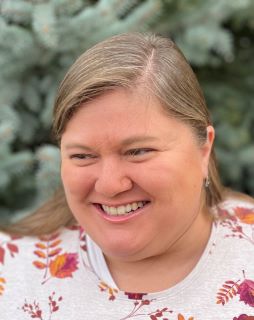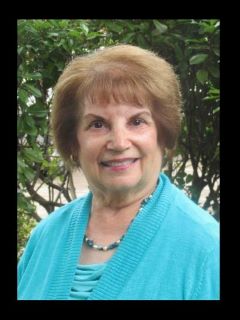We love building relationships. Subscribe to our blog to receive weekly encouragement in your email inbox.
Search Our Blog Posts
Blog Article Tags
Visit Our Store
Donate
You can also mail checks, made out to IRSM, to:
Iron Rose Sister Ministries
PO Box 1351
Searcy, AR 72145
IRSM is a 501(c)(3), so donations are tax-deductible.
Blog
More blog entries below
 Written by Rianna Elmshaeuser, Volunteer with Iron Rose Sister Ministries in Colorado
Written by Rianna Elmshaeuser, Volunteer with Iron Rose Sister Ministries in Colorado
I used to have a job for the state of Colorado, where I went to various courthouses in a judicial district and typed out hearings and trials at the highest levels of criminality. I will not go into detail, but I heard the worst of what humans do to one another. I sat in the courtroom with evil regularly. I am a sensitive person, and this job of eight years took an extreme toll on my soul and mental health. When I left that job, I was in bad shape. I would spend my evenings drowning out my thoughts with television, YouTube, or whatever noise I could find. There was no peace in my mind. Many a night, I would weep alone in the dark. I found it difficult to exist in a world where there was such evil.
Today, I am in a much better place. I have a relationship and connection with God and others that I never dreamed possible. I still suffer some of the effects of that job on occasion, which causes a loved one to sometimes comment that they wish I had never had that job. The funny thing is, I do not wish that. In fact, I am grateful for it.
It was that work that forced me to wrestle with deep questions about God and the things He allows to happen. It caused me to focus on the things that matter when it comes to sharing Jesus with people. It opened my eyes to the reality that while we sit in our little churches and bicker about how the communion trays are passed and whether the doors in the back are opened or closed during services, the Enemy is ravaging the world just outside our doors, and much of the time, we are doing nothing about it. That work gave me a passion for those who have no one in their life who has ever shown them true, real love—Jesus’ love.
I left that job in 2019 and went back to school. This past fall, I started the second year of my Master’s in Mental Health Counseling. I have enough experience now (though not much) that I can say with confidence that it is the work God created me to do. I am learning skills to help people heal, learn how to be loved, and find God in suffering. I have done a significant amount of healing myself on this journey. I would never have found any of the beautiful relationships I have today if I had never had that job.
James 1:2-4 says, “Consider it pure joy, my brothers and sisters, whenever you face trials of many kinds, because you know that the testing of your faith produces perseverance. Let perseverance finish its work so that you may be mature and complete, not lacking anything” (NIV).
These verses do NOT mean we must be happy when going through hard seasons and situations. I now know that this means that we should consider it joy because our trials will be productive. When we are enduring unbearable pain and suffering, God is with us in the thick of it, and He is bringing about growth.
My hard times did not end when I left my State job. 2024 was another year of great heartache and loss. But as I endured this season, I knew that from it, God would bring about greater blessings in my heart and my life. I have already begun to see the growth in myself, and I know that more is still to come. While none of us ever wishes for trials of any kind, we can consider them joy when they do come, because we know God is with us, for us, and growing us through the pain.
 Written by Deanna Brooks, Volunteer with Iron Rose Sister Ministries in Arkansas
Written by Deanna Brooks, Volunteer with Iron Rose Sister Ministries in Arkansas
Thanksgiving…gratitude…appreciation. Most of us were probably taught the importance of thanking someone when they did something for us.
In the United States, we have a day in November that we call Thanksgiving. Families and friends often gather to share a meal. They may watch the Macy’s Thanksgiving Day Parade and often a football game. But I wonder how much time is spent in actually being thankful… not just for our physical blessings, but for a God who loves us deeply.
In Ephesians 5:20, the apostle Paul encourages us with these words: “…giving thanks always and for everything to God the Father in the name of our Lord Jesus Christ” (ESV).
“Giving thanks always” …do we do that?
David, a man after God’s own heart, penned many psalms of thanksgiving. What makes David’s words so special to me is that he had a lot of struggles: he had to run and hide from King Saul for about 10 years… his sin with Bathsheba… constant battles against Israel’s enemies… and discord within his own house among his children.
Still, he had a heart of thankfulness.
1 Chronicles 16:8-36 is a song of David when the ark was returned to Jerusalem after being taken by the Philistines. In verses 8 and 9, we see David bursting out in thankfulness and praise: “Oh give thanks to the LORD; call upon his name; make known his deeds among the peoples! Sing to him, sing praises to him; tell of all his wondrous works!”
Throughout the book of Psalms, there are many expressions of thanksgiving written by David.
Psalm 100 is the one many people think of first: “Enter his gates with thanksgiving, and his courts with praise! Give thanks to him; bless his name! For the LORD is good; his steadfast love endures forever, and his faithfulness to all generations!” (Verses 4, 5).
In Psalm 111, David begins by saying he will give thanks to the Lord with his whole heart.
Psalm 30 seems to have been written after a near-death experience…perhaps when David was fleeing from King Saul…and he closes verse 12 with these words: “O LORD my God, I will give thanks to you forever!”
Psalm 9 was probably written after a victory over one of Israel’s enemies, and in verse 1, David says, “I will give thanks to the LORD with my whole heart; I will recount all of your wonderful deeds.”
In Psalm 28:7, David acknowledges the Lord as his strength and shield:
The LORD is my strength and my shield; in him my heart trusts, and I am helped;my heart exults, and with my song I give thanks to him. The LORD is the strength of his people; he is the saving refuge of his anointed.”
Psalm 119 shows David’s heart for the Lord as he praises Him with thankfulness:
“Oh how I love your law! It is my meditation all the day” (verse 97).
“How sweet are your words to my taste, sweeter than honey to my mouth” (verse 103).
“Your word is a lamp to my feet and a light to my path” (verse 105).
“Your testimonies are my heritage forever, for they are the joy of my heart” (verse 111).
These are just a few of the writings of David that show why he is called “a man after God’s own heart” (1Sa 13:14, Ac 13:22).
The key to David’s being a man after God’s heart is found in Psalm 119:10: “…with my whole heart I seek you.”
In reading through the Psalms, one thing that stands out to me is that David was continually meditating on God‘s goodness, what God had done, and how God was continuing to both pursue and protect David… not only from his enemies, but from his own sins. David’s response was one of thankfulness.
God continues to pursue us with the same diligence today. In Psalm 23:6, we read, “Surely goodness, and mercy shall follow me.” The Hebrew word for “follow” means an “intense pursuit” … like a lion chasing its prey. God wants to rescue us from the clutches of Satan. Is our response to His pursuit like that of David… a heart seeking Him and filled with thankfulness?

